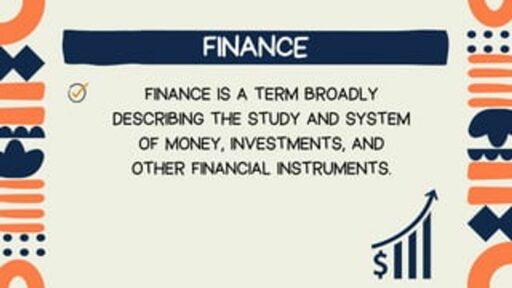Navigating the complexities of dental financing can be particularly challenging for individuals with bad credit. This article provides insight into the various solutions and strategies available to help manage the costs of dental care, ensuring that financial constraints do not hinder one’s ability to maintain oral health. From understanding credit scores to exploring alternative financing options and managing debt, we delve into the practical steps that can be taken to secure necessary dental treatments without exacerbating financial difficulties.
Key Takeaways
- Even with a low credit score, there are numerous dental financing solutions available, including dental loans, credit cards, in-house finance plans, dental membership programs, and buy now, pay later schemes.
- Alternative financing strategies such as in-house dental financing plans and dental membership programs can offer more flexible payment options for those with bad credit.
- Securing dental loans with the help of a guarantor can provide access to larger loan amounts and may increase the likelihood of approval for individuals with poor credit.
- A wide range of dental procedures, including emergency care, orthodontics, and cosmetic treatments, can be financed even with a low credit score.
- Managing dental financing debt effectively and taking steps to improve one’s credit score are crucial for long-term financial planning and access to better financing options for dental health.
Understanding Your Credit and Dental Financing Options


What Constitutes a Low Credit Score?
Understanding what is considered a low credit score is crucial when exploring financing options for dental care. A low credit score, often referred to as bad credit, can significantly hinder your ability to secure financing. It’s a three-digit number that lenders use to evaluate the risk of lending to an individual.
Credit scores in the United States are mainly determined by two models: FICO and VantageScore, both ranging from 300 to 850. Here’s how they categorize credit scores:
| Credit Score Range | FICO Score | VantageScore |
|---|---|---|
| Poor | Below 580 | Below 601 |
| Fair | 580-669 | 601-660 |
Scores in the fair range are also often considered subprime, which may result in higher interest rates and more difficulty in obtaining loans, including those for dental procedures.
Bad credit not only limits your financing options but also makes borrowing more expensive due to higher interest rates.
If you find yourself with a low credit score, it’s important to know that there are still financing solutions available, although they may come at a higher cost.
Exploring Dental Financing Solutions for Bad Credit
Securing financing for dental procedures can be challenging with a low credit score, yet it’s not impossible. There are several avenues to explore that cater specifically to those with less-than-ideal credit histories. Options range from specialized dental loans to alternative payment plans that bypass traditional credit checks.
- Dental loans may offer structured repayment terms, though interest rates might be higher for those with bad credit.
- Credit cards designed for healthcare expenses sometimes provide no-interest periods, which can be beneficial if the balance is paid within that timeframe.
- In-house finance plans from dentists often come with flexible payment options and may not require a credit check.
- Dental membership programs can reduce the overall cost of care through discounts on services.
- Buy now, pay later services allow for immediate treatment with the commitment to pay over time, often without interest if paid promptly.
While these solutions provide a pathway to necessary dental care, it’s crucial to review the terms carefully to ensure they align with your financial situation and capacity to repay. Remember, even with bad credit, you have options to maintain your dental health without incurring unmanageable debt.
It’s also worth noting that some lenders, such as OneMain Financial, Universal Credit, or Avant, may offer loans tailored to individuals with bad credit. Researching and comparing these options can lead to finding a financing solution that works for you, despite a low credit score.
The Role of Credit Cards in Dental Financing
Credit cards can offer a convenient way to finance dental procedures, even for those with less-than-ideal credit scores. Introductory zero APR credit cards provide an interest-free period that can be a strategic option for managing the cost of dental care. However, it’s crucial to be aware of the high interest rates that apply after the promotional period ends, as these can significantly increase the overall cost if the balance is not paid off in time.
CareCredit is a popular option that caters specifically to medical expenses, including dental. It offers short-term, interest-free financing for amounts over $200, and extended payment plans for larger treatment costs. Qualifying for CareCredit and similar cards may be easier for individuals with fair credit scores.
Here’s a quick comparison of credit card financing options:
- Introductory zero APR credit cards: Interest-free period, high post-promotional rates.
- Medical credit cards like CareCredit: Specialized for healthcare, potential for interest-free financing.
- Traditional credit cards: Available to those with various credit scores, but typically higher interest rates.
It’s important to carefully consider the terms and conditions of each credit card option and to plan for repayment within the interest-free period to avoid additional charges. Managing credit card debt effectively can also contribute to improving your credit score over time.
Alternative Financing Strategies for Dental Care


In-House Dental Financing Plans
In-house dental financing plans offer a lifeline for those who have postponed dental care due to financial constraints. These plans are typically accessible to individuals with bad credit, providing a structured way to manage the cost of dental treatments. By allowing patients to spread payments over time, these plans can accommodate a variety of budgets and make expensive procedures more attainable.
Many dental practices bypass third-party lenders by offering their own financing solutions. For example, some clinics provide 0% financing options on approved credit for complex treatments, such as orthodontics or implants. This direct approach simplifies the process, as there’s no need to apply for external funding like CareCredit.
We’re committed to making dental care accessible. Our tailored payment plans are designed to fit your budget, ensuring you receive necessary care without added financial stress.
Here’s a quick overview of what you might expect with in-house dental financing:
- Extended payment plans for treatments over $1,000
- Options for 0% financing on approved credit
- No need for insurance coverage
- Personalized plans to suit individual financial situations
Remember, while these plans can be a great option, it’s important to fully understand the terms and conditions before committing to ensure they align with your financial capabilities.
Dental Membership Programs
Dental membership programs offer a beacon of hope for individuals with bad credit seeking dental care. These subscription-based models provide a way to access discounted dental services without the need for rigorous credit checks. Members typically pay an annual fee and receive a range of benefits, making dental care more affordable and predictable.
For example, a standard dental membership plan might include:
- Regular cleanings and exams covered by the membership
- A flat discount, such as 20%, on other dental services
- No deductibles or waiting periods
- Immediate benefits upon enrollment
These plans are particularly advantageous for those without dental insurance, as they offer a structured way to manage dental expenses throughout the year.
Moreover, dental membership programs often come with the added convenience of no claim denials or pre-approvals, simplifying the process for patients. By choosing a dental membership, patients can ensure their oral health is maintained while also keeping a close eye on their budget.
Buy Now, Pay Later Services
Buy now, pay later (BNPL) services have emerged as a flexible financing arrangement for those with less-than-ideal credit scores. These programs allow patients to receive dental care immediately after making a down payment, with the balance spread over a series of payments. Typically, these plans do not incur interest charges and offer a variety of repayment terms, often ranging from six to 24 months.
BNPL services can be particularly beneficial for individuals who need dental work but are facing financial constraints. The absence of upfront costs and the ability to make convenient monthly payments can make dental care more accessible.
When considering BNPL options, it’s important to be aware of potential late fees, which can be as high as $30 or up to 15% depending on the state. Additionally, while there are no penalties for early payoff, it’s crucial to understand the terms and conditions to avoid any unexpected charges. Here’s a quick overview of what to expect with BNPL services:
- Approves applicants with bad or fair credit
- No early payoff fees
- Reasonable loan minimums for smaller dental needs
- Option to pre-qualify with a soft credit check
- Quick funding, often within 1-2 business days
- Secured loan options may offer lower rates
Remember, while BNPL services offer a convenient way to manage dental expenses, it’s essential to consider your ability to meet the payment schedule to avoid additional fees.
Securing Dental Loans with Guarantors


The Basics of Guarantor Loans
Guarantor loans offer a pathway to dental financing for individuals with bad credit scores. By enlisting a trusted friend or family member to act as a guarantor, you provide the lender with additional security, which may increase the likelihood of loan approval and potentially allow for a larger loan amount.
When considering a guarantor loan, it’s crucial to have open and honest discussions with your potential guarantor about the responsibilities involved. Both parties should be fully aware of the implications should you fail to make repayments.
It’s important to note that guarantor loans can be a double-edged sword. While they can provide access to necessary funds, they also carry risks for the guarantor. If you default on the loan, the guarantor is legally obligated to cover the debt, which can strain personal relationships and financial stability.
Before proceeding with a guarantor loan, compare different lenders and their terms. Be wary of lenders that may prey on those in desperate financial situations, as unfavorable terms can lead to a cycle of debt. Here are some steps to take when evaluating guarantor loans:
- Research potential lenders and their reputations.
- Understand all loan terms and conditions before agreeing.
- Discuss the arrangement in detail with your guarantor.
- Consider the impact on your relationship with the guarantor.
- Plan for repayment to avoid defaulting on the loan.
Finding a Suitable Guarantor
When considering a guarantor for a dental loan, it’s essential to choose someone who not only trusts you but also has the financial stability to assume the debt if necessary. A guarantor should have a good credit history and a stable income. They are committing to making payments on your behalf if you’re unable to, which is a significant responsibility.
- Look for someone who believes in your ability to repay the loan.
- Ensure they understand the full extent of their commitment.
- Discuss the potential impact on their credit if they need to step in.
It’s crucial for both parties to have a clear and honest conversation about the expectations and potential consequences involved in a guarantor agreement.
Remember, not just anyone can serve as a guarantor. They must meet certain criteria set by the lender, which typically includes a credit check and proof of income. It’s a serious decision that should not be taken lightly, as it can affect both your and the guarantor’s financial future.
Understanding the Risks and Responsibilities
When securing a dental loan with a guarantor, it’s crucial to understand the potential risks and consequences involved. Both the borrower and the guarantor must be fully aware of their obligations and the implications if the borrower fails to repay the loan.
- The borrower’s inability to repay can damage the guarantor’s credit score.
- Legal action could be taken against the guarantor to recover debts.
- The guarantor’s assets may be at risk if the debt is not settled.
It’s essential to have open and honest discussions about financial situations and expectations before entering into such agreements. Both parties should agree on a plan for handling any financial difficulties that may arise during the loan period.
Carefully evaluating these factors can help make a well-informed decision that aligns with your unique circumstances. Remember, choosing the right financing option is a critical step in achieving your financial goals.
Dental Procedures Accessible Through Financing


Commonly Financed Dental Treatments
Access to dental care is crucial for maintaining oral health, yet the cost can be prohibitive for many, especially those with bad credit. Financing options have become a lifeline for individuals needing various dental treatments.
The most commonly financed dental services include:
- Dental implants
- Tooth extractions
- Fillings, crowns, and other restorative work
- Root canal treatment
These procedures not only address immediate dental issues but also contribute to long-term oral health. Financing helps patients receive timely care without the financial burden of upfront payment.
Nearly 90 percent of American adults experience tooth decay at some point, making restorative work like fillings and crowns among the most financed treatments. Extended payment plans, often up to 60 months, are available for treatments costing $1,000 or more, providing a manageable solution for those with limited financial flexibility.
Financing Options for Emergency Dental Care
When facing an emergency dental situation, the immediate need for treatment can be stressful, especially if you’re worried about the cost. Emergency dental care often cannot wait, and this is where financing options become crucial for those with bad credit. Fortunately, there are several avenues to explore that can help manage the financial burden.
- Dental loans may be available even with a low credit score, offering structured payment plans.
- Credit cards specifically for medical expenses can provide immediate funds, though interest rates should be carefully considered.
- In-house financing from dental clinics often comes with flexible terms and may not require a stringent credit check.
- Buy now, pay later services like CareCredit, Sunbit, and Lending Club can offer quick approvals and manageable repayment schedules.
It’s important to understand that while these options can provide relief, they also come with responsibilities. Ensuring you can meet the repayment terms is essential to avoid further financial strain.
Extended payment plans may be available for costly emergency procedures, allowing you to spread the cost over time to suit your budget. This can be particularly helpful for treatments costing $1,000 or more. Always review the terms and conditions of any financing plan to ensure it aligns with your financial situation.
Cosmetic and Orthodontic Financing Possibilities
Financing options for cosmetic and orthodontic procedures are increasingly accessible, even for those with less-than-perfect credit. Orthodontic treatments like braces or Invisalign and cosmetic services such as veneers or teeth whitening can be financed through various programs tailored to individuals with bad credit.
Options include:
- Extended payment plans, allowing for treatments to be paid over time.
- Dental financing companies that offer competitive rates and flexible terms.
- In-house financing from dental clinics, which may not require a credit check.
It’s essential to compare the terms and conditions of different financing solutions to find the most suitable one for your financial situation.
Remember, while financing can make dental care more accessible, it’s important to ensure that the repayment terms align with your budget to avoid further financial strain.
Managing Debt and Improving Credit Health


Strategies for Managing Dental Financing Debt
Successfully managing debt requires a clear understanding of your financial situation and a strategic approach to repayment. Distinguishing between good and bad debt is crucial, as it allows you to prioritize which debts to pay off first. Typically, high-interest debts such as credit card balances should be tackled promptly to avoid spiraling costs.
Creating a debt management plan is a proactive step towards financial freedom. This plan should outline your debts, monthly income, and essential expenses, providing a roadmap for repayment. Here are some steps to consider in your plan:
- Assess your total debt and categorize it by interest rate and balance.
- Prioritize repayment of high-interest debts.
- Explore options for debt consolidation or refinancing to lower interest rates.
- Set realistic monthly payment goals and stick to them.
- Monitor your progress and adjust your plan as needed.
Remember, the goal is to create a sustainable plan that not only addresses your current debt but also prevents future financial strain. By committing to this plan, you can work towards a healthier financial future while ensuring your dental care needs are met.
Tips for Improving Your Credit Score
Improving your credit score is a strategic process that requires attention to your financial habits. Making timely payments is crucial as payment history is a significant component of your credit score. Even a single late payment can have a substantial negative impact, potentially lowering your score by up to 100 points.
Reducing your credit utilization ratio is another effective strategy. Aim to keep your revolving credit balances below one-third of your available limit. This demonstrates to lenders that you manage credit responsibly. If you’re struggling with obtaining traditional credit cards, consider a secured credit card. With a security deposit to mitigate risk, these cards can be easier to obtain and, when used wisely, can help rebuild your credit profile.
Here’s a simple list to keep in mind:
- Pay bills on time to avoid late payments.
- Lower credit utilization by paying down existing debt.
- Avoid opening multiple new credit accounts simultaneously.
- Consider a secured credit card to establish a positive payment history.
Remember, improving your credit score isn’t an overnight fix but a journey of consistent financial discipline. By following these steps, you can gradually enhance your creditworthiness and open up new possibilities for dental financing and beyond.
Long-Term Financial Planning for Dental Health
Effective long-term financial planning for dental health involves a proactive approach to managing costs and exploring various payment options. By partnering with trusted financial providers, you can ensure flexibility in managing dental expenses.
- Extended payment plans can provide a manageable solution for costly treatments, allowing payments to be spread over time.
- Consider joining a dental membership plan like the Wisdom Membership Plan for consistent care at a predictable cost.
- Utilize financing options such as CareCredit, Sunbit, or Lending Club to accommodate urgent or unexpected dental procedures.
It’s essential to balance your dental needs with your financial capabilities, making informed decisions to avoid overextending your budget. Regularly reviewing and adjusting your financial plan can help you maintain both your dental health and credit health over the long term.
Conclusion
Navigating dental financing with bad credit can be challenging, but it’s not insurmountable. As we’ve explored, there are a variety of solutions and strategies available to help individuals afford the dental care they need. From dental loans and credit cards with introductory zero APR offers to in-house finance plans and dental membership programs, options exist to manage the costs of dental treatments. It’s important to carefully consider each option, understand the terms and potential impact on your financial situation, and seek advice if necessary. Remember, prioritizing your dental health is crucial, and with the right approach, you can find a way to finance necessary procedures without compromising your financial future.
Frequently Asked Questions
What constitutes a low credit score?
A low credit score is typically considered to be below 580 on the FICO score scale. This can vary between different credit reporting agencies, but generally, scores in this range may indicate to lenders that the borrower is a higher risk.
Can I still get dental financing if I have a bad credit score?
Yes, there are financing options available even if you have a bad credit score, such as dental loans, credit cards with introductory zero APR offers, in-house dental financing plans, dental membership programs, and buy now, pay later services.
What dental procedures can I finance with bad credit?
Individuals with bad credit can finance a range of dental procedures, including dental implants, tooth extractions, fillings, crowns, root canal treatment, and other restorative dental work.
How does in-house dental financing work?
In-house dental financing allows patients to spread the cost of treatment over time to suit their budget. It is often available to individuals with bad credit and can cover more costly procedures, with some plans offering extended payment terms.
What is a guarantor loan and how can it help with dental financing?
A guarantor loan is a loan where a close friend or family member agrees to cover the repayments if the borrower becomes unable to pay. This provides the lender with additional security and may allow individuals with bad credit to borrow a larger amount for dental work.
What strategies can I use to manage dental financing debt and improve my credit score?
To manage dental financing debt, ensure timely payments, and consider consolidating debt if possible. To improve your credit score, pay bills on time, reduce outstanding debt, and avoid new credit inquiries. Long-term financial planning can help maintain dental health without overextending financially.





